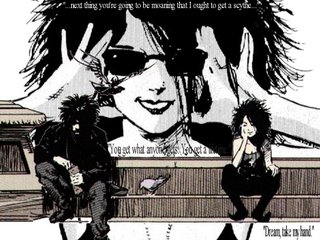Peachyroo

Word of the Day
"Just Peachy" ~~ Answer to a question like "Are You OK?"
Robert Wolverton wrote:
Where does the term peachy come from. Doesn't make much sense to me.
Sure it does.
Peaches are round, soft, sweet, delicious, and pretty.
Their downy skins, usually tinged with a pinkish blush, are smooth and velvetlike to the touch and pleasing to the eye.

Peachy has traditionally been defined in dictionaries as 'resembling a peach' in these various good ways, and peachy roundness, softness, and pinkness have been associated with cheeks, particularly those of young women, since the late 16th century.
A 1775 quotation from the OED refers archetypally to "A delicate, peachy, bloom of complexion, very common in England."
Peachy cheeks fairly abound in literature, as in Thomas Hardy's Mayor of Casterbridge, where he refers to "the tears that would occasionally glide down her peachy cheeks."

These peachlike virtues have led to two extended informal meanings.
The first, 'excellent, fine', has been in use since the early 1900's, as in a 1908 reference in which quotation marks signal that peachy was still a somewhat slangy term, not yet established: "A home run would have been very 'peachy'."
This sense grew more common during the twenties, as in "He told himself that Airedales were peachy dogs" (Farrell, Young Lonigan, 1930), and was still in casual use through the fifties, sixties, and seventies: "Now if you'll just co-operate with us, everything will work out peachy" (1953).

The second informal meaning, narrowed in focus from the more general sense of excellence, is 'attractive, pretty' and was prevalent at the same time as the first: "Gee, but she shore was peachy" (1913)" and "The flowers are peachy" (1929) are typical examples.
By the 1980's peachy struck many as somewhat old fashioned and is now often used ironically, although irony is a lot easier to spot when listening rather than reading.
For example, "Just peachy" in answer to a question like "Are you OK?" can be either perfectly honest or sarcastic, depending on the tone of voice.
Variations on this fruitful theme, for both the straightforward and ironic uses of peachy, include peachy-keen, peacherino, and ginger peachy.

In truth, this kind of semantic development of a word is far from unusual.
Language invites creative extensions of literal meanings, and English just bristles with food metaphors.
You look at cheesecake in magazines.
You milk a situation for all you can get.
You sit around and chew the fat with a friend.
And if you're a good egg, my little dumpling, you can try to be cool as a cucumber in front of your colleagues, even though you've just landed a plum job because you're the apple of the boss's eye and know how to butter her up.

(Enid)


0 Comments:
Post a Comment
<< Home